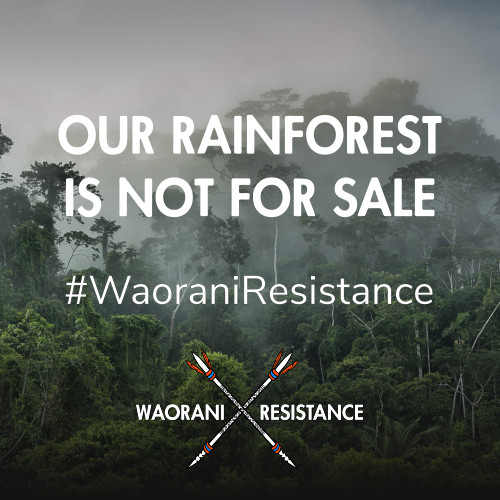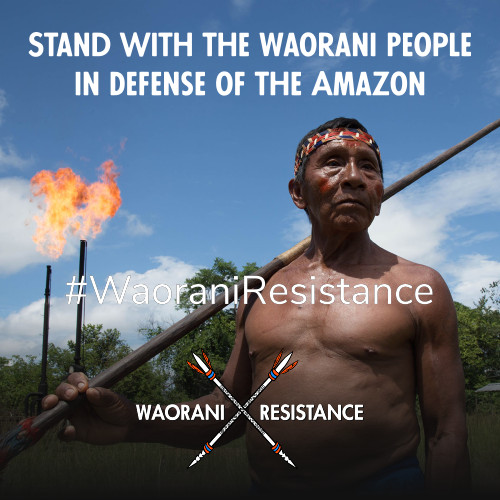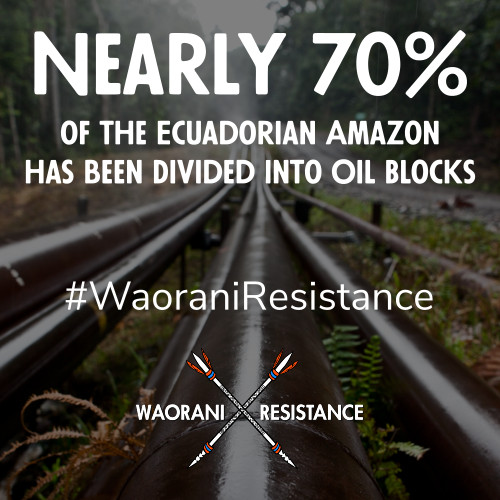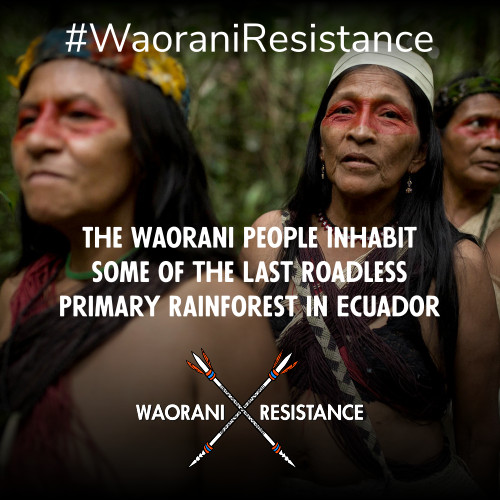Learn More
About Our Resistance
“Our spears are no longer enough to defend our territory from oil threats. We, the Waorani of Pastaza, recognize the importance of tools like video, digital campaigns, political advocacy and legal strategies in the defense of our ancestral homeland. The “Waorani Resistance” platform and campaign is the result of a collaboration between CONCONAWEP, the organization representing the Waorani communities of the Pastaza region in the Ecuadorian Amazon, the Ceibo Alliance, an Ecuadorian indigenous non-profit, and international organization Amazon Frontlines. We have the support and permission of our communities to tell and share our stories with the world. Together, we create and manage content, designs and messages as part of the Waorani Resistance movement, and we make collective decisions on how to best deploy funds raised through this website. Partnership makes us stronger. Although we live in the Amazon and many of you who read this live far away - together, we can achieve great things for the protection of our forests and our cultures, and the planet we all share.”
- Waorani Resistance





